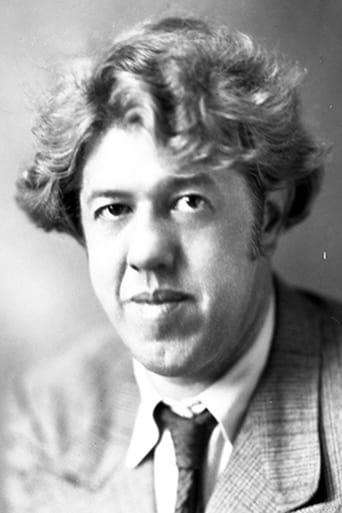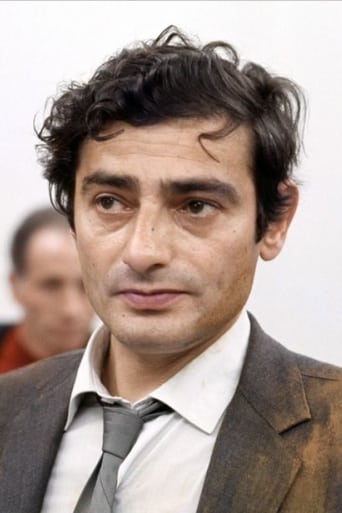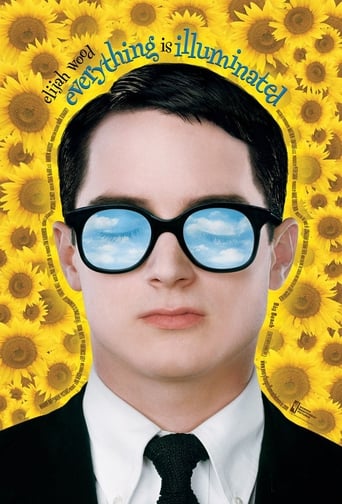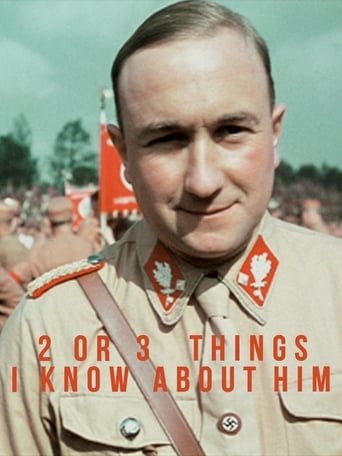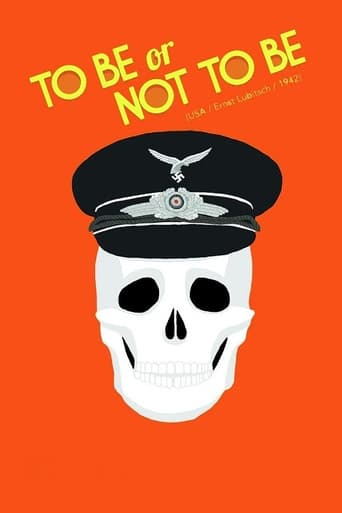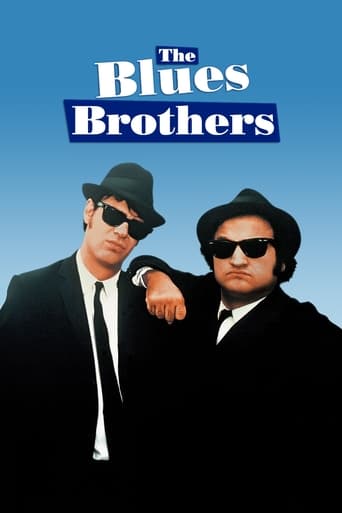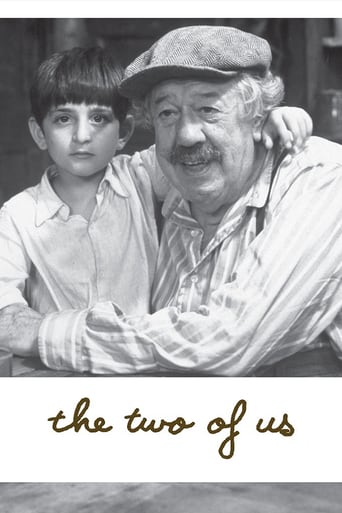
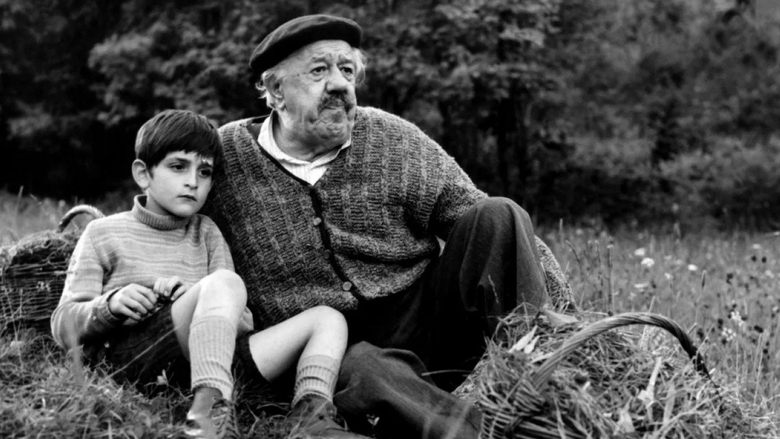
The Two of Us (1967)
A story of the caring friendship formed between a crusty, old anti-Semite and an eight-year-old Jewish boy who goes to live with him during World War II.
Watch Trailer
Cast
Similar titles
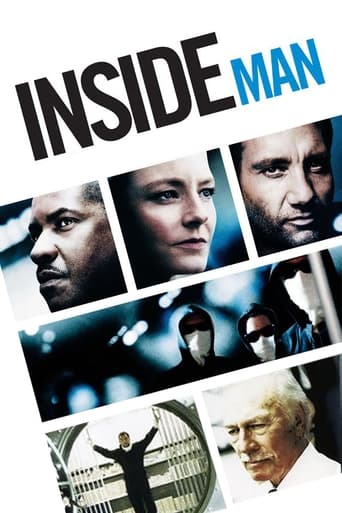
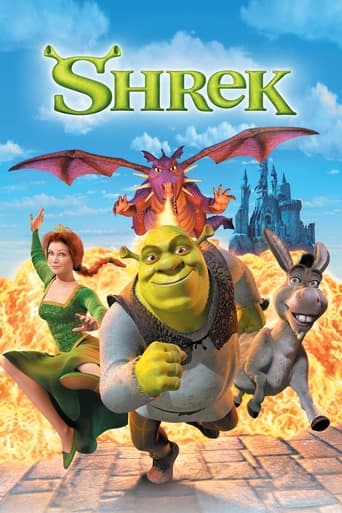
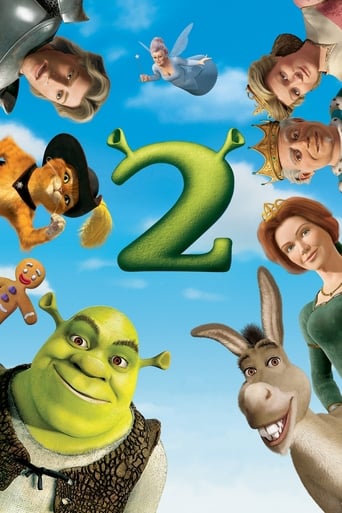
Reviews
Sick Product of a Sick System
Good concept, poorly executed.
Expected more
The movie turns out to be a little better than the average. Starting from a romantic formula often seen in the cinema, it ends in the most predictable (and somewhat bland) way.
Claude Berri's The Two of Us (1967) proves two critical axioms. (i) A period film is as much about the time it is made as the time it is set. Why else tell it now? The very best are also about the time they're seen, even decades later. They tap into a continuing, profound truth that transcends the original incident. (ii) The most effective treatment of a large theme is a small, intimate story. Then an issue gets an emotional address in human terms, not abstractions.(i) In 1967 Claude Berri described the loving relationship that develops around 1944 between an 8-year-old Jewish boy -- sent for refuge from occupied Paris to the countryside -- and Pepe, the antisemitic old man who hosts him. Pepe becomes the boy's Gramps. As the old Petainiste spouts the clichés of French antisemitism he personifies a tradition that extends from the Dreyfuss Affair to the Nazi collaborators — and down to today, the recent slaughters in Paris and the government's detachment from Israel. As Berri taps a deep and resurgent vein in French culture his film feels as current now as it did in 1967.(ii) This small humorous story illuminates the global tragedy of antisemitism, as large a topic as one can undertake. Little Victor is a charming miniature of The Jew. He's bright enough to trounce the old man's adult son at checkers — consistently. He's disciplined enough to hide his Jewishness (his circumcision as well as his name) from the country folk. His attempts to fit in — courting a neighbour's blonde daughter — end in his humiliation. A city schoolmate calls him a dirty Jew. The rural kids don't know he's Jewish but bully him anyway, for no reason other than they consider him an outsider. That's the basis of the Jew's perpetual persecution. But Victor also has the Jew's indomitable spirit. In the city he gets into trouble by refusing to accept the inhibitions his frightened parents feel and try to impose. He won't be intimidated or suppressed. He impishly probes old Pepe's prejudice, urging him to spout the stereotype then charging the old man with the very qualities he declared Jewish. He calculates how to get to share the old couple's bed the way he did his parents'.The ending is poignant. After Liberation Pepe feels "the world has passed me by." His beloved Petain is defeated and the nations he considers France's enemies have won the war. His dear old dog has died, his son has turned against his politics and his authority, and now he loses the lad he has come to love. Pepe and his wife stand in the rain as the bus taking away Victor and his parents drives off, their faces against the back window. Pepe doesn't have to reconsider his antisemitism in the light of his love for Victor. We know the boy loved him, despite that prejudice. He felt the old man's love despite his words. Pepe has an emotional connection truer than the bigoted myth he believed.The film has a nostalgic feel, confirmed by the fact Director Berri gives young Victor his own family name: Langmann. The English title seems an improvement on the French original. "The Old Man and the Boy" suggests an outside perspective on the pair. "The Two of Us" speaks from within the two -- for either one. The English title emphasizes the connection, the French their difference. Sad to say, recent events suggest the world has not passed the old bigot by after all.
This is a charming movie set in the backdrop of war while carefully avoiding much of the asperity of war. It focuses on the relationship of a young boy and his adopted septuagenarian "Grampa", Pepe.Claude is a nine year old Jewish boy. He is bright and mischievous, as young boys are. His parents move from place to place in occupied France to avoid being detected. Claude is continually bringing unwanted attention to himself and his desperate parents. They decide to send him to stay with the parents of a trusted Catholic friend. Enter Pepe, Michel Simon.Pepe is an old rogue, full of half-baked political opinions, always babbling some truculent platitude or other. He's not too bright but he's a complex character, warm and charming. We see him feeding his 15 year old pet dog from a plate with a spoon. The dog wears a bib. This is a soulful old man, despite his vitriol. Pepe immediately takes to Claude and begins to educate him about the evils of France's 'natural enemies': the Germans, the English, the Freemasons, the Bolsheviks and the Jews. But ultimately, it is Claude who educates Pepe.The relationship develops and we see that Claude finds more enjoyment with Pepe than he does with village kids. Unlike his time with his parents, Claude behaves himself well. He helps Pepe with chores. They play games together. The two are inseparable. Rather than joining the village ruffians, Claude is their victim and runs home to the protection of Pepe. The old man supplies something that Claude did not get at home, despite Claude's affection for his parents.Claude very cleverly runs rings around Pepe, showing the nonsense of his claims about the Jews. This is quite amusing. Claude moans that he must be a Jew, according to the description Pepe gives. Pepe comforts him, "no, of course you are not." Then Claude strikes back, accusing Pepe of being a Jew, with his big nose and curly hair. Pepe stands before the mirror, examining himself forlornly. We can see that Pepe is slowly coming to realize the folly of the clap-trap he has been espousing.Pepe is too lovable a fellow to really hate his enemies, who are mere phantoms. He clings to his opinions out of habit rather than conviction. Pepe grumbles when the local priest delivers a sermon advocating compassion to the oppressed. But grumbling is about the extent of Pepe's bigotry. Claude teases Pepe that after the war the Jews will probably come back to power. Pepe dismisses the observation with the remark, "Oh well, they're probably no worse than the rest of them." Claude has worn the old bigot down.Claude never reveals that he is a Jew. One of the reviewers above thought that this non-revelation meant that the film never resolved. I disagree. One of the strengths of the film is that it doesn't follow a formulaic structure. It is not full of clichés. A revelation scene would lend itself to cliché.The movie makes its point eloquently, without such clichés: bigotry is a vapid habit of belief and love is a more powerful force than hatred. What more need be said?
I caught this at the local art museum, what a treasure it is! I became interested because the director is Claude Berri, and his "Jean de Florette/Manon des Sources" story is one of my favourites of all time. Although this movie is in black and white, it's a superior quality and beautiful to watch. The story, of a little Jewish boy hiding out in the country with an anti-semitic old man in occupied France, could easily have gone down the path of sadness and tears, but instead it is a joyous movie full of laughter and love. I must say Michel Simon is a delightful actor, and makes even a narrow-minded, ignorant, brainwashed old man like Pépé a kind, fun grandpa that any child would love to have. I believe this movie is based on Claude Berri's actual experience, but I did have to wonder at the end if Pépé was ever told the truth about the child's heritage and if so, did it matter? Anyway, this is a fantastic heartwarming movie that you shouldn't miss if you ever get the chance to see it.
Cute. Tender and somewhat kitch. A showcase for 72 years old Michel Simon, an important Swiss actor of silent and early talking films. Double bill with Sound of Music. They go well together with war, kids, frightening adults and tender moments. A film for the church lady.
